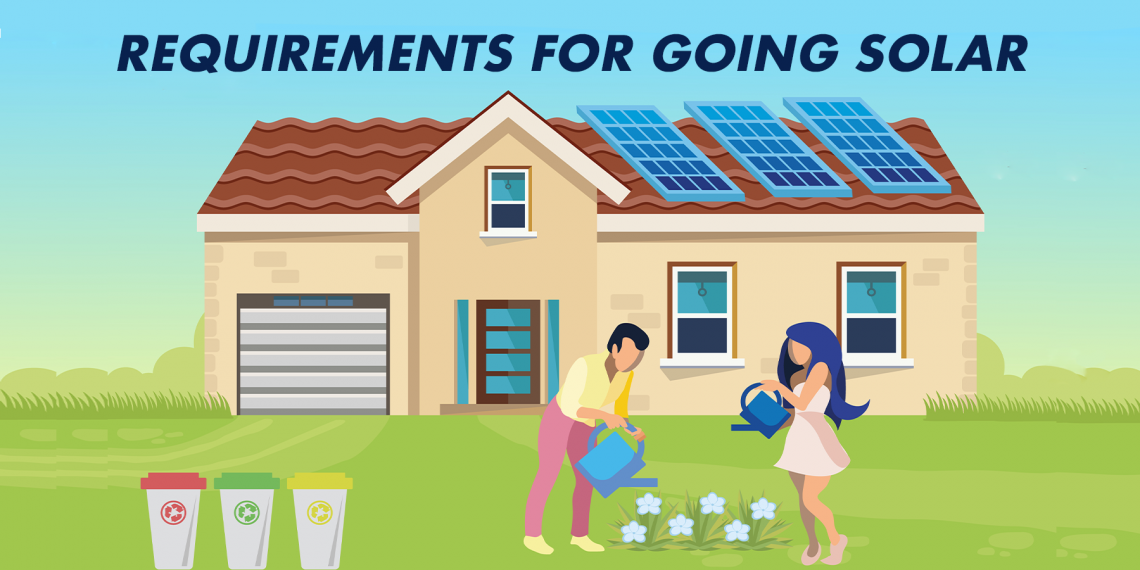
After all the battles that have been fought and won in the solar war, renewable energy advocates are finally bringing solar energy to the forefront of mainstream discussion. And with the recent advancements of solar photovoltaic technology, going solar is cheaper to the homeowner than ever before—even outpricing coal! This is allowing homeowners to find all of the long-term financial benefits to going solar more immediately achievable.
Having said this, there is still a qualification process that is necessary to approve residential and commercial solar projects. Below I will break down all of the basic qualifications that must be met in order to move forward with a transition to solar energy.
REQUIREMENTS FOR GOING SOLAR
-
Be the Legal Home or Business Owner: Before anything else, in order to go solar you will have to be the home or business owner. The reason is simple, if your name is not the name of on the title, then you cannot legally sign for the installation. However, there is still a chance for renters to go solar. Read our blog about that one!
-
Solid Roof or Extra Land for Ground Mount: After we have established homeownership, we need to make sure your property is adequate to install solar. Is your roof safe to hold solar panels? If not, we do provide roofing services as well. There is also the option of a ground mount installation if you have extra property beside your home.
-
Property in Solar-Friendly Location: If you’re some place that rains or snows 5 days a week, solar might not be the best choice for you. Also, if there is shade from a tree or building next to your property that is blocking the area where we would install solar panels, that could sabotage your solar energy production. So your property needs to be evaluated to make sure you are receiving the highest value for your money.
-
Cash or 650+ Credit Score: Most homeowners that go solar take a loan of 10, 15, or 20 years. The better your credit score, the better your chance of getting approved for a solar loan and also the lower your interest rate will be. 650 is generally the lowest credit score accepted for full approval, but we recommend getting your score over 700 just to get a better term. If you want to pay in cash, then your credit score wouldn’t play a role as approval for financing will not be needed.
-
Net Metering/Net Billing or Purchase Battery Storage: When you go solar, your solar electric system will overproduce some days and underproduce other days. You don’t want to lose that extra electricity. It is rightfully yours and some months you may need it to offset your power bill. This is why you your utility company must provide net metering or net billing. Read the previous blog to learn more about how each of those two utility programs can be an integral part of your experience. If you want to go completely off-grid, a battery storage system and possibly even a backup power generator might be the option you are looking for, but it will naturally cost more for the extra equipment.
-
Have Power Bill with 6–12 Month kWh Graph ready: Once all the other criteria are met, we’ll need to customize your solar estimate. A blog was written as well about why every solar quote is unique. We’ll need to look at your power bill to determine your monthly kWh usage. This will help us determine the system size which is most accurate for you.
So to summarize, most homeowners with good credit and little to no shade can be perfect candidates for solar PV technology, but there is no guarantee. Unlike other companies who will sell you anything to help their bottom line, we go through this careful vetting process to make sure you are best positioned for long-term value, vanishingly low utility bills, and decades of energy independence. If the items on the preceding list apply to you, we look forward to helping you take advantage of this great opportunity to go solar!
by Ged Friedman
